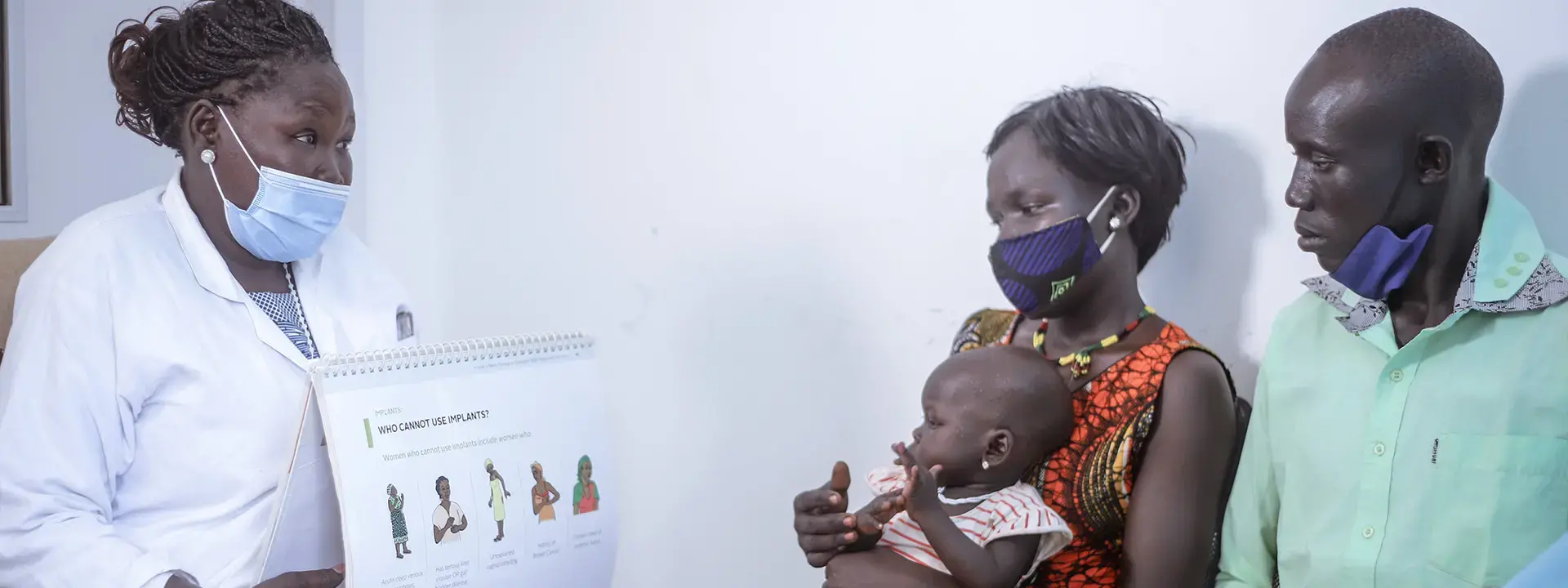The total fertility rate is 4.4 children per woman, and family planning uptake in South Sudan remains extremely low, with a contraceptive prevalence rate of only 6 per cent for all methods. The unmet need for family planning remains high (29.7 per cent [FP2030 report]). The essential medicines supply and distribution system is greatly affected by an inefficient push system and a very weak national logistics management and information system, with gaps in inventory management including forecasting, distribution, partner management of supplies, and reporting. The 2019 Safe Motherhood Study identified several challenges affecting family planning services, including a lack of transport, the distance between health facilities, insecurity, gender inequality and gender-based violence, with both clients and health workers facing harassment and threats of violence for accessing or administering family planning without spousal consent. Additionally, the quality of family planning services remains poor, with limited demand generation activities.
UNFPA Response:
The UNFPA programme in South Sudan is targeting to increase the modern contraceptive prevalence rate (for women aged 15-49 years) from 6 per cent to 15 per cent by 2030. Additionally, the South Sudan Investment Case for ending the unmet need for family planning by 2030 proposes that an increase in the modern contraceptive prevalence rate from 30 per cent to 50 per cent would avert nearly 1.4 million unintended pregnancies, requiring an investment of about US$28.33 million. As such, UNFPA response includes:
- expanding equitable access to rights-based, quality family planning information and services, including competency-based training in all family planning methods, provision of MISP in humanitarian settings, using innovations and ensuring that the programmes reach the furthest behind first.
- scaling up delivery of quality integrated SRH and FP services, using human rights-based approaches, including support for community-based initiatives including Boma Health initiative to provide family planning and SRH services.
- scaling up demand-side interventions to address gender and socio-cultural norms and practices that impede access to SRHR and family planning information and services and perpetuate inequalities between men and women, including engagement with faith-based organizations, traditional, and cultural leaders.
- strengthen reproductive health and family planning commodity security, including supply chain management, introducing a phased approach of a responsive electronic logistics management information system and ‘last mile’ assurance activities
- promoting family planning and SRHR within universal health coverage and supporting family planning advocacy and policy development.


